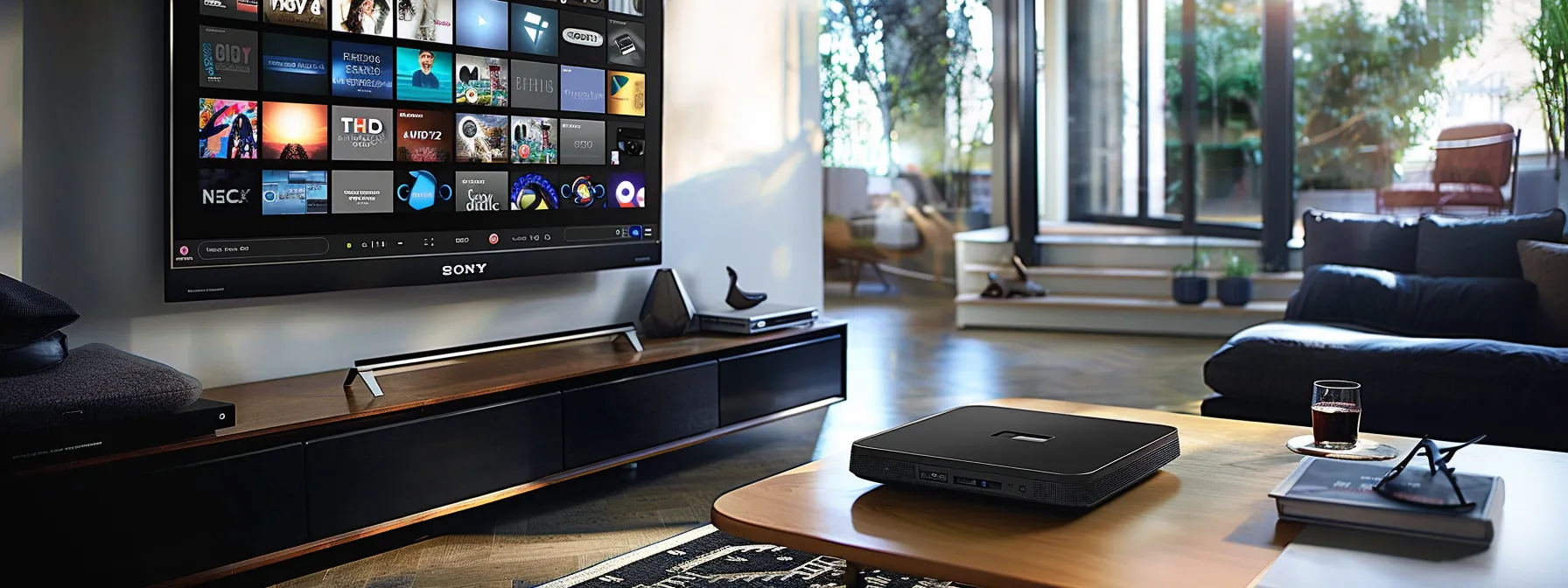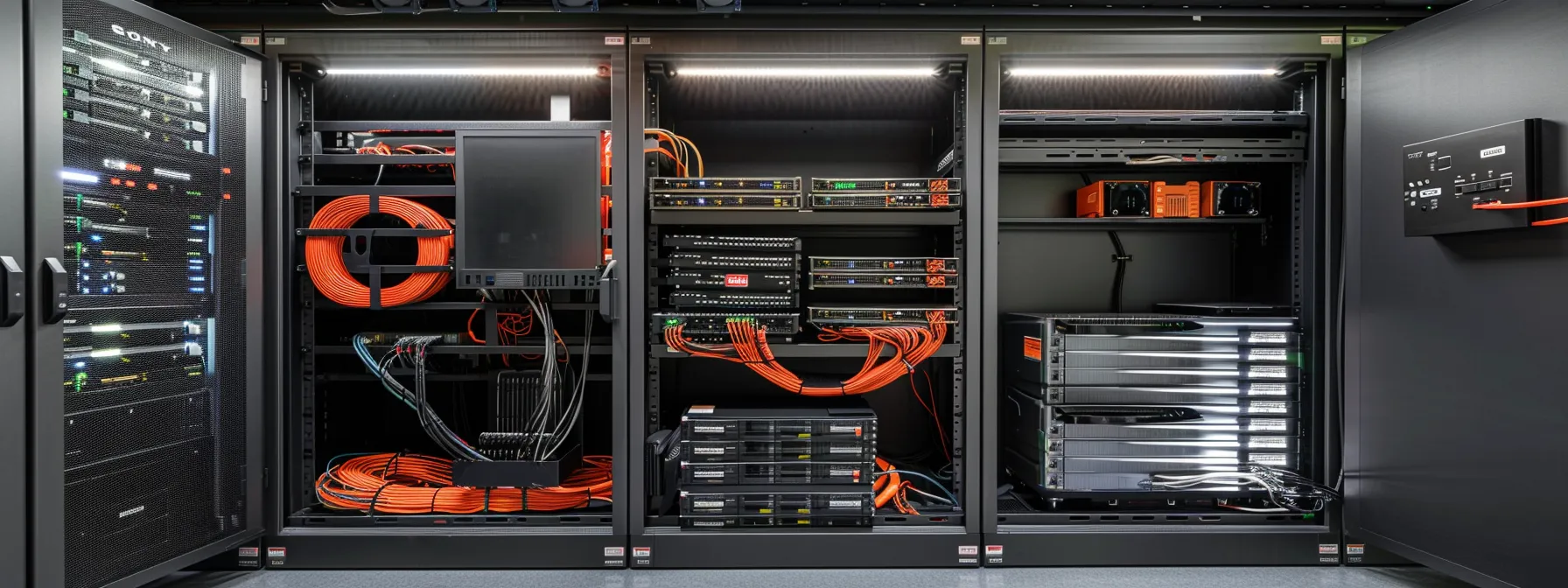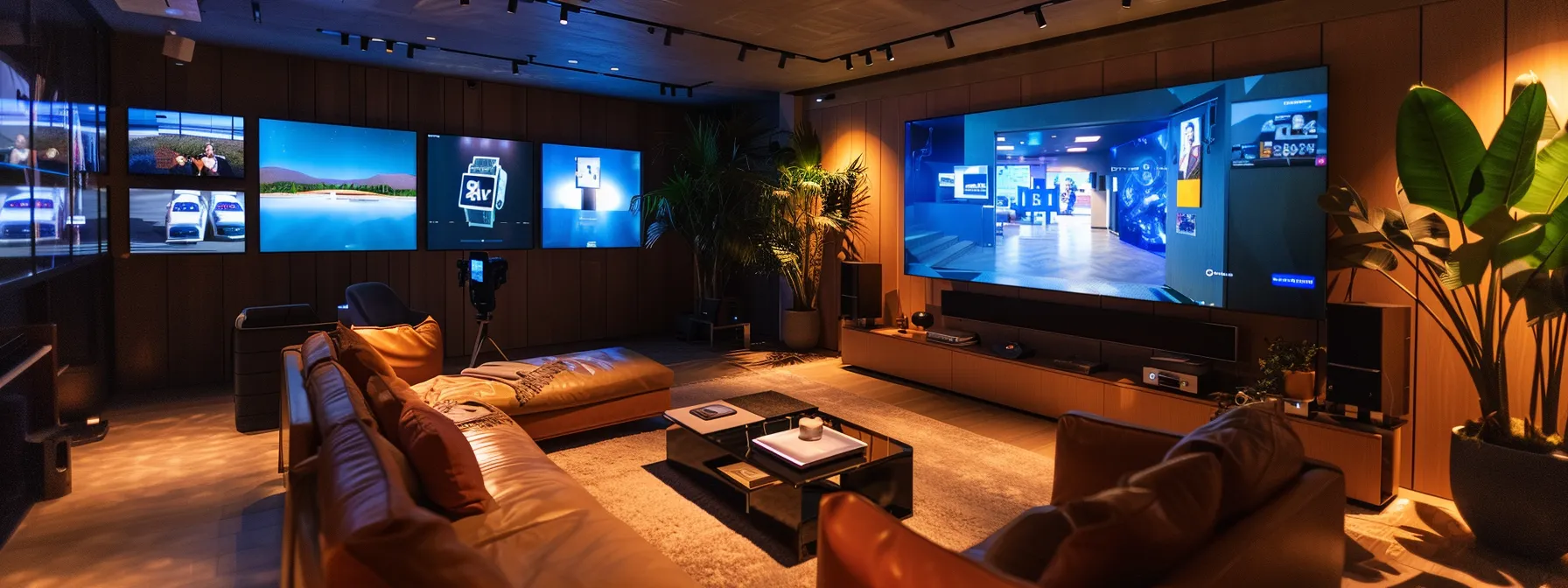Firstly,habits with television.
Table Of Contents:
- Introduction to IPTV: Unlocking Internet Protocol Television
- The Technology Behind IPTV
- How IPTV Works: A Step-by-Step Explanation
- Benefits of IPTV for Viewers and Providers
- IPTV in the Current Digital Media Landscape
- The Future of IPTV: Trends and Predictions
- Conclusion
Internet Protocol Television, or IPTV, is redefining how we engage with media. In a world where broadband internet is almost ubiquitous, the transition to streaming TV shows and movies directly via the internet protocol is inevitable. This post will delve into the technological core of IPTV, illustrating how it transforms the viewing experience for both end users and providers, particularly in relation to smart TVs. As an end user, unraveling the complexities of IPTV not only expands your entertainment options but also unveils potential avenues for content monetization. Through compelling insights and step-by-step explanations, you will understand how to harness the power of IPTV, anticipating the future of digital media that promises to be more personalized and accessible than ever before.
Introduction to IPTV: Unlocking Internet Protocol Television

As we step into the realm of digital media, I’ll guide you through IPTV’s basics, illustrating the transition from conventional television to this advanced technology. Unlike traditional broadcast, IPTV utilizes an internet connection to offer diverse streaming media, integrated multimedia services, and an electronic program guide that includes video on demand. Our exploration will shed light on how this evolution enhances your viewing experience with cutting-edge features like digital signage, heralding a new era of interactivity and convenience. Learn more about StreamCobra 4K in our section About StreamCobra 4K. IPTV leverages internet protocol television
Understanding the Basics of IPTV
Grasping the fundamentals of IPTV begins with understanding how it leverages StreamCobra 4K broadband connections to deliver a seamless home network viewing experience. Unlike standard television offerings, IPTV integrates seamlessly with a triple-play service to offer live television, video on demand, m3u and internet access all in one. By utilizing advanced middleware, viewers have the flexibility to access their favorite content on a variety of devices, from mobile app devices to smart TVs. This integration ensures that my entertainment options expand beyond the living room, granting me the convenience to enjoy high-quality streaming media wherever I choose.
How IPTV Differs From Traditional TV Broadcasting
Stepping away from the traditional TV broadcasting model, IPTV introduces a transformative approach by transmitting via a wide area network, typically through a digital subscriber line. This innovation eliminates the need for fixed schedules and spatial restrictions, providing an on-demand, interactive experience that aligns with modern lifestyles. As I navigate through different channels and programs, IPTV utilizes protocols like the internet group management protocol, enhancing the efficiency of live feed delivery and offering a user-friendly interface that is leaps and bounds ahead of conventional television‘s static offerings. Gone are the days of rigid program times and extra fees for premium content; IPTV reshapes my viewing into a personalized and cost-effective experience. Learn more about StreamCobra 4K.
what is iptv tv?
As a professional in the telecommunications industry, I am often asked about IPTV, which stands for Internet Protocol Television. IPTV is a cutting-edge technology that delivers streaming media content over the internet rather than through traditional cable or satellite platforms. This allows viewers to access their favorite television programs, movies, and video content through an internet connection.
One of the key advantages of IPTV is its ability to offer a more customized viewing experience. Users can choose the content they want to watch and when they want to watch it, thanks to features like video-on-demand and time-shifted TV. Additionally, IPTV services often include interactive features such as program guides, electronic program guide, and social media integration, enhancing the overall viewing experience.
Moreover, IPTV is known for its high-quality video and audio services, providing viewers with crystal-clear picture and sound. This technology has revolutionized the way we consume television content, offering flexibility and convenience that traditional TV services cannot match. With the rapid advancements in internet technology, IPTV is expected to continue growing in popularity as the go-to choice for modern television viewing.
what is iptv tv box?
As a professional in the industry, I can confidently explain what an IPTV TV box is. IPTV, which stands for Internet Protocol Television, is a technology that delivers television content over the internet rather than through traditional cable or satellite methods. An IPTV TV box is a device that allows users to access and stream IPTV content on their television. It serves as a bridge between the internet and your TV, enabling you to watch live TV channels, on-demand videos, movies, and more with just an m3u internet connection.
One of the key advantages of using an IPTV TV box is the convenience and flexibility it offers in terms of content consumption. With an IPTV TV box, users have access to a wide range of channels and content from around the world, often at a more affordable price than traditional cable or satellite subscriptions. Additionally, many IPTV TV boxes come equipped with features such as DVR capabilities, electronic program guides, and interactive services to enhance the viewing experience. Overall, an IPTV TV box is a modern and innovative solution for accessing television content in the digital age, providing a customizable and user-friendly entertainment experience for consumers
As a professional in the industry, I can confidently explain what an IPTV TV box is. IPTV, which stands for Internet Protocol Television, is a technology that delivers television content over the internet rather than through traditional cable or satellite methods. An IPTV TV box is a device that allows users to access and stream IPTV content on their television. It serves as a bridge between the internet and your TV, enabling you to watch live TV channels, on-demand videos, movies, and more with just an m3u connection.
One of the key advantages of using an IPTV TV box is the convenience and flexibility it offers in terms of content consumption. With an IPTV TV box, users have access to a wide range of channels and content from around the world, often at a more affordable price than traditional cable or satellite subscriptions. Additionally, many IPTV TV boxes come equipped with features such as DVR capabilities, electronic program guides, and interactive services to enhance the viewing experience. Overall, an IPTV TV box is a modern and innovative solution for accessing television content in the digital age, providing a customizable and user-friendly entertainment experience for consumers.The Evolution From Conventional TV to IPTV
The passage from conventional television to IPTV marks a significant milestone in how media is consumed. With secure encryption and robust quality of service protocols, IPTV offers a streamlined viewing experience through an internet protocol, safeguarding against disruptions and unauthorized access. This evolution signifies a shift where the firewall of traditional viewing limitations is breached with m3u, ushering in an era where choices in media are expansive and tailored to personal preferences. I relish the ability to curate my media repertoire with the assurance that quality and privacy are uncompromised.
The Technology Behind IPTV

Delving into the sophisticated core of IPTV, I observe how Internet Protocol facilitates a robust platform for services like live streaming and StreamCobra 4K on Demand. Within the infrastructure, elements such as optics and scalable networks play pivotal roles in delivering content with speed and interactivity. HDMI interfaces are integral for HD content delivery, bridging the gap between diverse media types and devices. What unfolds is a seamless, flexible media eco-system that encompasses VOD, live broadcasts, and time-shifted media for an unparalleled viewing experience m3u.
How Internet Protocol Enables IPTV Services
At the heart of Internet Protocol Television (IPTV) is the internet protocol suite, which fundamentally changes how I receive video content. By harnessing packet switching, a method where data is grouped into packets before transmission, IPTV ensures I receive an uninterrupted StreamCobra 4K, mpeg transport stream directly over my internet connection. Unlike the former, rigidly structured broadcasts, this technology provides the flexibility and efficiency that align perfectly with my dynamic lifestyle, whether on my mobile app or any computer network connected device.
The Best IPTV Services for Sports Fans: Why Choose Streamcobra 4K?
As a professional content writer, I understand the importance of high-quality streaming services, particularly for sports enthusiasts. When it comes to choosing the best IPTV service for sports fans, one name that stands out is Streamcobra 4K. This service is renowned for its exceptional performance, offering top-notch streaming quality and a wide range of sports channels to cater to every fan’s needs, compatible with mobile app.
Streamcobra 4K prides itself on its reliability and commitment to delivering an unparalleled viewing experience. With its crystal-clear 4K resolution, viewers can enjoy sports events with stunning clarity and detail, making them feel like they are right in the midst of the action. Furthermore, Streamcobra 4K boasts a user-friendly interface that makes navigation seamless and convenient for users of all levels of technical expertise. Amazon fire tv
One of the reasons why I recommend Streamcobra 4K as the best IPTV service for sports fans is its extensive coverage of various sports leagues and events from around the world. Whether you’re a fan of soccer, basketball, tennis, or any other sport, you can rest assured that Streamcobra 4K has got you covered. With its affordable pricing plans and excellent customer support, Streamcobra 4K is truly a game-changer in the world of IPTV services for sports enthusiasts.Components of IPTV Infrastructure
Within the intricate architecture of IPTV, several core components interconnect to deliver content seamlessly to viewers across Europe and beyond. A gateway, such as StreamCobra 4K, stands as the pivotal junction between the external internet and my local area network, ensuring that high-quality, over-the-top (OTT) services can be accessed without signal degradation. Furthermore, protocols like internet protocol are employed, facilitating real-time management of the service, even from distant locations. This infrastructure not only fortifies the streaming of live channels but also underpins the reliability and user satisfaction I value so deeply. To learn more, check out the Pricing Plans or About StreamCobra 4K.
Types of IPTV Services: VOD, Live Streaming, and Time-Shifted Media
The diversification of IPTV services encompasses Video on Demand (VOD), live streaming, and time-shifted media, each elevating the entertainment experience with convenience and personalization. VOD allows me to access internet video libraries on my schedule, while live streaming offers real-time broadcasts via multicast, paralleling the traditional TV experience but with greater flexibility. Time-shifted media, a feature that extends my control over programming, permits me to watch previously aired content, ensuring I never miss a moment of my favorite shows. These services, compatible with devices like Amazon Fire TV , highlight IPTV’s commitment to delivering a tailored and seamless viewing experience directly through an internet connection.
How IPTV Works: A Step-by-Step Explanation

IPTV represents a game-changing shift in how I engage with digital media. At the foundation of this innovative service lie critical processes like content acquisition and encoding, pivotal to preparing and optimizing media for IP-based delivery. Following this, the intricately designed workflow for content distribution over IP networks showcases the robustness of broadcasting through streaming media. Finally, as an end-user, I interact with this content through amazon fire tv -friendly set-top boxes or software applications, ensuring that disparate systems like a dish network seamlessly merge with modern technology, enhancing my viewing experience. These steps together form the cornerstone of reliable and flexible IPTV service delivery.
Content Acquisition and Encoding
In the initial stage, content acquisition and encoding are crucial for delivering IPTV services with impeccable quality. I closely follow the application of sophisticated analytics to gauge viewer engagement, optimizing the delivery of diverse content from m3u channels to premium selections. Ensuring content protection with robust digital rights management, I prioritize maintaining creators’ and broadcasters’ rights while maximizing potential revenue streams. Moreover, whether on an iOS device or an alternative platform, encoding optimizes the video for seamless streaming, maintaining a high-quality experience regardless of the viewing device.
Step-by-Step Guide to Setting Up Your IPTV Service at Home
Setting up your IPTV service at home can seem like a daunting task, but with this step-by-step guide, I’ll walk you through the process to make it easy and seamless. As a professional in the industry, I understand the importance of having a reliable and high-quality IPTV m3u service for your entertainment needs.
you will need to choose a reputable IPTV service provider that offers a variety of channels and content. Do your research and read reviews to ensure you select a provider that fits your preferences and budget. Once you have chosen a provider, sign up for a subscription plan that suits your viewing
Next, you will need a compatible device to access your IPTV service. Most Smart TVs, streaming devices, and set-top boxes are equipped to handle IPTV services. Make sure your device is connected to the internet and download the necessary m3u app provided by your IPTV service provider.
After setting up your device, input your login credentials provided by the IPTV service provider to access your channels and content. You can now start exploring the vast array of channels and content available to you through your m3u IPTV service.
By following these steps, you can easily set up your IPTV service at home and enjoy a wide range of entertainment options such as video on demand right at your fingertips. As a professional in the field, I recommend investing in a quality IPTV service to enhance your viewing experience and cater to all your entertainment needs.
Content Distribution Over IP Networks
In my deep dive into the technology of IPTV, I find that content distribution over IP networks is a cornerstone of delivering high video quality and robust advertising capabilities. This process ingeniously harnesses data from the communications satellite and infrastructure to ensure a consistent and rich media streaming experience to the end-user. As a result, I can enjoy a crisp, uninterrupted view of my preferred content with ads tailored to my interests, all thanks to the intricate yet smooth delivery system that underpins IPTV services. Server’s role is critical in delivering this content
User Access via Set-Top Boxes and Apps
My exploration of IPTV’s user interface reveals a smooth, customer-centered journey, facilitated by set-top boxes and a range of applications. On launching services like HBO via an OTT platform, I am greeted by an intuitive user experience that ripples seamlessly across my devices, thanks to the careful orchestration between the server infrastructure and user datagram protocol. This orchestration ensures that my interaction with IPTV is not just a passive viewing session, but an immersive journey into hyper-personalized digital media consumption. href=”https://streamcobra4k.com/comprehensive-guide-to-choosing-the-right-IPTV-provider/”>Comprehensive guide to choosing the right IPTV provider 4k resolution
Benefits of IPTV for Viewers and Providers

The intriguing evolution from traditional cable and satellite television to IPTV has unlocked a trove of benefits for both viewers like myself and service providers. I now enjoy personalized viewing experiences directly on my smartphone, coupled with interactive features that elevate user engagement far beyond what’s possible with a coaxial cable connection. This transition is not just about enhanced internet access and interactivity; it’s also a testament to cost-effectiveness, offering a competitive edge to IPTV over longstanding media distribution methods.
Personalized Viewing Experiences
The advent of IPTV has revolutionized my media consumption, offering personalized viewing experiences that cater to individual preferences. With features like a digital video recorder integrated within the service, I can effortlessly record, pause, and play back digital data, ensuring that I never miss a moment of my favorite programming. My m3u becomes the conduit for interactive services, including virtual reality enrichments, providing me with a tailored signal unhampered by traditional broadcasting limitations. This personalization not only enhances my engagement with content but also vastly improves the efficiency and enjoyment of my digital video experiences. My mobile app becomes the conduit for interactive services.
Comparing IPTV and Traditional Cable: What’s Right for You?
As a seasoned content writer specializing in technology and entertainment, I often find myself immersed in the evolving landscape of television consumption. When it comes to choosing between IPTV and traditional cable, the decision can be daunting. IPTV, or Internet Protocol Television, offers a more modern and flexible approach to watching TV, utilizing the internet to stream content directly to your device. On the other hand, traditional cable has been a staple in households for decades, offering a wide range of channels and live programming.
One key factor to consider when comparing IPTV and traditional cable is the level of customization and convenience each option provides. IPTV allows users to tailor their viewing experience with on-demand content, personalized recommendations, and the ability to watch on multiple devices. Traditional cable, while offering a vast array of television channels, may lack the flexibility and portability that IPTV provides. Additionally, IPTV often comes at a lower cost than traditional cable packages, making it an appealing choice for budget-conscious consumers.
In conclusion, the decision between IPTV and traditional cable ultimately depends on your specific preferences and viewing habits. If you prioritize customization, flexibility, and cost-effectiveness, IPTV may be the right choice for you. However, if you value a wide selection of live programming and a familiar viewing experience, traditional cable may still hold its allure. Whichever option you choose, it’s essential to weigh the pros and cons to make an informed decision that aligns with your television entertainment needs.
IPTV vs. Streaming Services: Which Option Is Best for You?
When it comes to choosing between IPTV and streaming services, there are certainly key factors to consider in order to determine the best option for your entertainment needs. IPTV, which stands for Internet Protocol Television, offers television content over the internet through a dedicated network, providing a more traditional TV experience with live channels and on-demand content. On the other hand, streaming services like Netflix, Hulu, and Disney+ deliver video on demand content directly over the internet, allowing users to watch shows and movies on-demand without the need for a cable or satellite TV subscription.
One of the main differences between IPTV and streaming services lies in the content availability and customization options. IPTV typically offers more live TV channels and sports content, making it a preferred choice for sports enthusiasts and viewers who enjoy live TV events. On the other hand, streaming services often provide a wider variety of on-demand movies and TV shows, allowing users to watch content at their own convenience and create personalized watchlists based on their preferences. IPTV service can also be accessed through a mobile app.
Ultimately, the decision between IPTV and streaming services depends on your viewing habits and preferences. If you value live TV channels and sports programming, IPTV may be the better option for you. However, if you prefer on-demand content and enjoy binging TV shows and movies, a streaming service might be more suitable. Consider your entertainment needs, budget, and desired content selection to determine which option aligns best with your viewing habits.Interactive Features and User Engagement
The landscape of digital television is rapidly transforming with IPTV’s use of unicast and multicast communications, which opens a realm of interactive features and user engagement that were previously inconceivable. As a veteran in the telecommunications industry, I’ve witnessed first-hand how unicast streams enable personalized media consumption, while the multicast approach efficiently delivers live content to a broad audience. This hybrid model equips me with an enhanced digital service that allows for an engaging, two-way communication channel, revolutionizing the way I experience television and interact with content providers. Get started as an IPTV reseller
Cost-Effectiveness Compared to Traditional Cable
In my experience, IPTV stands out as a cost-effective solution compared to traditional cable television. The shift to IPTV circumvents the limitations of signal transmission through a coaxial cable, thereby reducing latency and the costs associated with infrastructure and maintenance. Watching on a mobile phone or computer, I’ve noticed that heavy reliance on transmission control protocol (TCP) allows for a more efficient and streamlined delivery of media content. This not only trims down my monthly expenses but significantly enhances my access to a wide array of digital media with less overhead.
IPTV in the Current Digital Media Landscape

As we delve into the global ascension of IPTV, I understand it’s crucial to grasp what IPTV is and how internet protocol, despite occasional packet loss, is reshaping technology and media consumption. I compare IPTV with OTT services, revealing key operational distinctions, and explore IPTV’s profound impact on how we consume content, eclipsing traditional methods like the antenna. These insights not only underscore IPTV’s significance in the present digital media landscape but also highlight its potential to redefine our interaction with the media. IPTV href=”https://streamcobra4k.com/the-ultimate-guide-to-optimizing-your-smart-player-with-iptv/”> m3u
The Rise of IPTV Globally
In my professional observation, the global surge in IPTV usage is a testament to its game-changing capabilities. This technology, which adeptly combines services like voice over IP with high-bandwidth data transfer, has permeated households worldwide by offering versatile features on online video platforms. The wireless convenience, coupled with the accessibility of an extensive array of programming, enables IPTV to redefine the television experience, connecting viewers to a world of content tailored to their personal tastes and preferences. IPTV reseller guide
IPTV vs. OTT Services: Key Differences
As I navigate the expansive digital media landscape, I notice crucial distinctions between IPTV and OTT services. IPTV, or Internet Protocol Television, frequently necessitates a specific license and often employs IP multicast technology to deliver content to multiple users simultaneously, optimizing m3u bandwidth utilization and enabling adaptive bitrate streaming for a smoother viewer experience. Conversely, OTT services stream content directly to consumers over the public internet without multicast, which can occasionally lead to fluctuations in bitrate and quality. This understanding helps consumers like me make more informed choices and enhances our digital viewing experiences.
IPTV’s Impact on Consumer Media Consumption
The transformative impact of IPTV on the media consumption landscape is profound. Through my IPTV service, I’ve seen how the competitive pricing strategies of television providers are adapting to meet the demands of a changing audience. No longer bound to traditional cable television packages, viewers now leverage the flexibility of services through devices like Android TV and applications on their telephones. This shift, facilitated by television companies and newer IPTV platforms alike, is not just altering the digital media landscape; it’s reshaping the very nature of how television is consumed, offering a customized viewing experience once thought impossible.
The Future of IPTV: Trends and Predictions

Looking ahead at the dynamic advancements in IPTV, I recognize its potential to integrate seamlessly with smart devices and home automation systems, promising a more connected and fluid media landscape. The deployment of 5G technology is set to boost IPTV capabilities, offering speeds and reliability that could transform the viewing experience. Meanwhile, emerging opportunities in personalized advertising are poised to revolutionize digital video marketing, leveraging dedicated servers and sophisticated content creation strategies to deliver targeted promotions. Each of these trends indicates an exciting future where IPTV becomes an even more integral part of our digital lives.
Integration With Smart Devices and Home Automation
As someone deeply involved in the future of IPTV, I have observed the growing trend where IPTV integrates with smart devices and home automation systems. With this advancement, the convenience of controlling favorite programs, whether live or video on demand, through devices like Amazon Fire TV, has been transformative. Envision empowering your entertainment space by commanding your IPTV service using an email address or voice recognition, efficiently interconnected via high-speed Ethernet. This level of integration with home automation promises a streamlined, responsive media experience with cable television , truly epitomizing the rise of a smart, connected home with 4K resolution.
The Role of 5G in Expanding IPTV Capabilities
As we enter the era of 5G technology, I recognize its vast potential to magnify the capabilities of IPTV, shaping it as the future of interactive television. The high-bandwidth and low-latency that 5G brings to routers will enhance the customer experience, delivering swift and stable connections to support a more sophisticated user interface and more robust access control. This leap in technology means that my IPTV service can operate more efficiently, allowing me to enjoy instant, buffer-free access to my favorite shows and an interactive experience that was once a distant dream. Amazon Fire TV
Emerging Opportunities in Personalized Advertising
As I delve into the transformation of digital media through IPTV, I’m intrigued by the emerging opportunities in personalized advertising. Companies are beginning to exploit the trove of data accessible through interactions with IPTV services, allowing them to tailor advertisements with unprecedented precision. With advancements in device management and data center capabilities, coupled with the widespread use of android and other smart platforms, marketing messages can be finely targeted to match viewer preferences and viewing habits. This hyper-targeted approach benefits both the consumer, who enjoys more relevant advertisements, and the advertiser, who can measure broadcasting ROI with greater accuracy. It promises a future where every commercial break is a step closer to the perfect symbiosis between viewer interest and internet company message, facilitated by technology television .
Conclusion
Understanding IPTV is paramount as it represents a paradigm shift from traditional media consumption to a more dynamic, individualized experience. IPTV’s infrastructure enables viewers to enjoy a diverse range of services with enhanced interactivity, ease, and cost-effectiveness, redefining user engagement. The technology‘s integration with smart devices and advancements like 5G signifies its seminal role in the future of digital media. As IPTV continues to evolve, it is poised to become an even more essential element of our connected, personalized entertainment m3u landscape. Comprehensive guide to choosing the right IPTV provider


